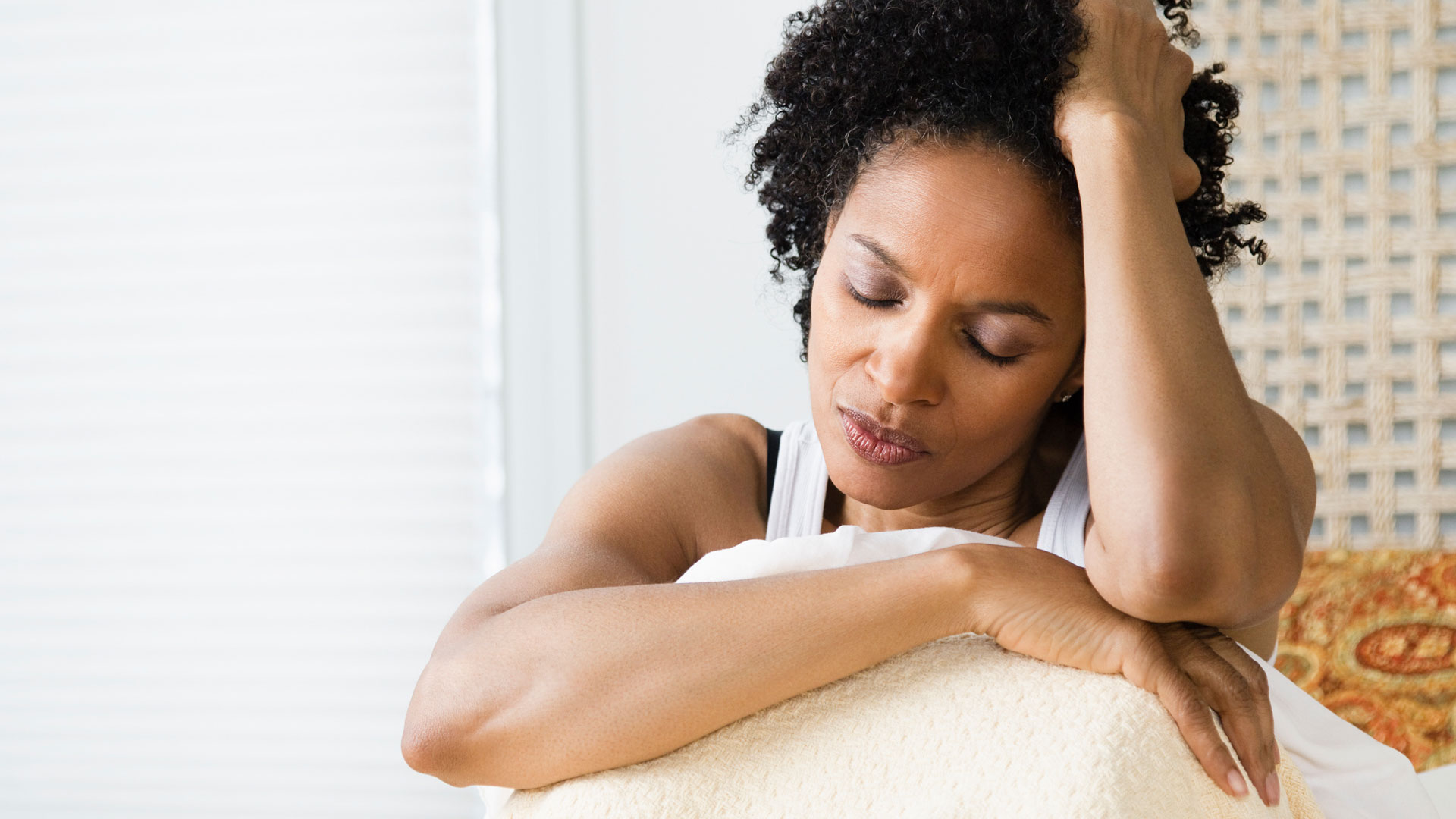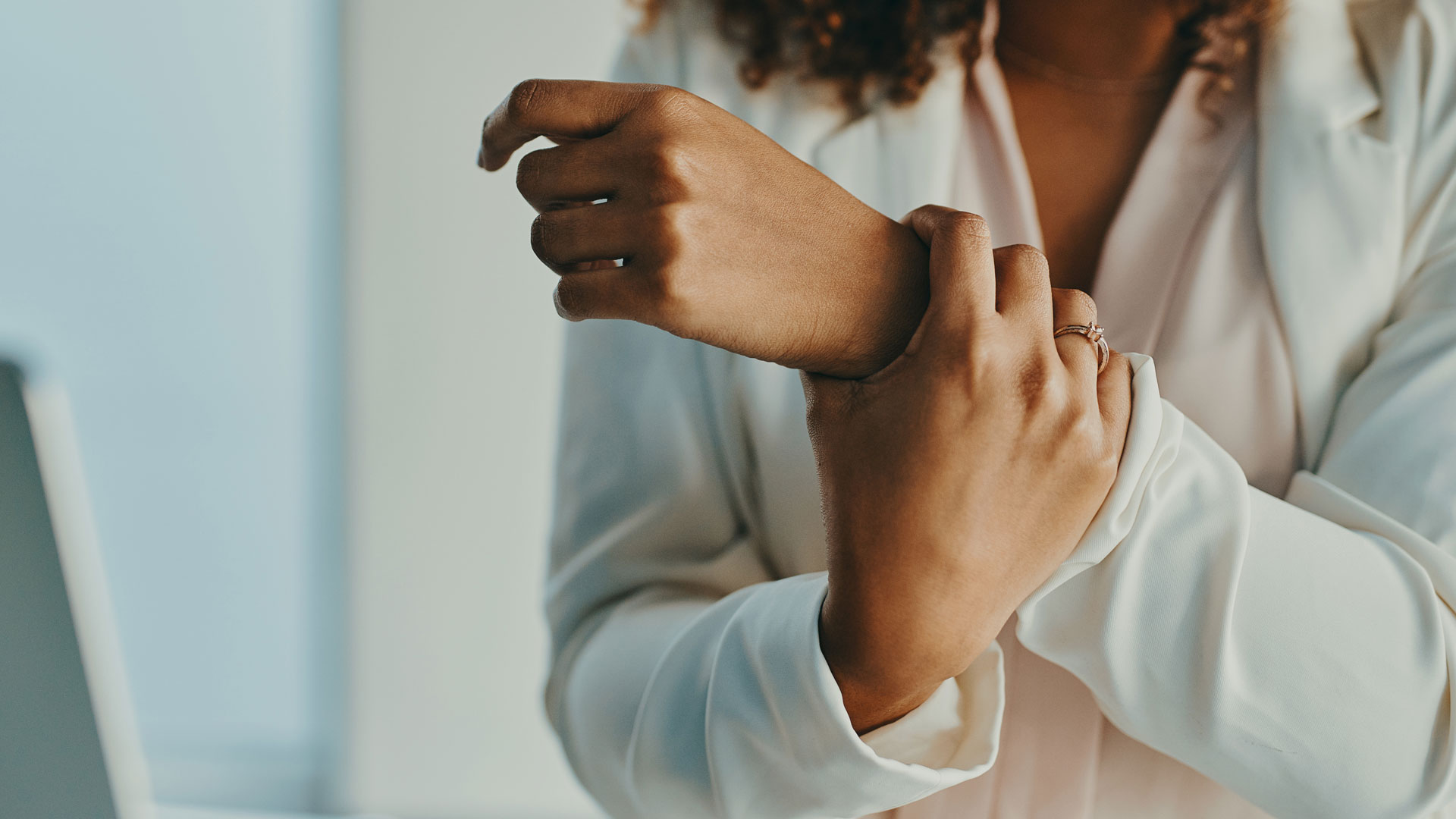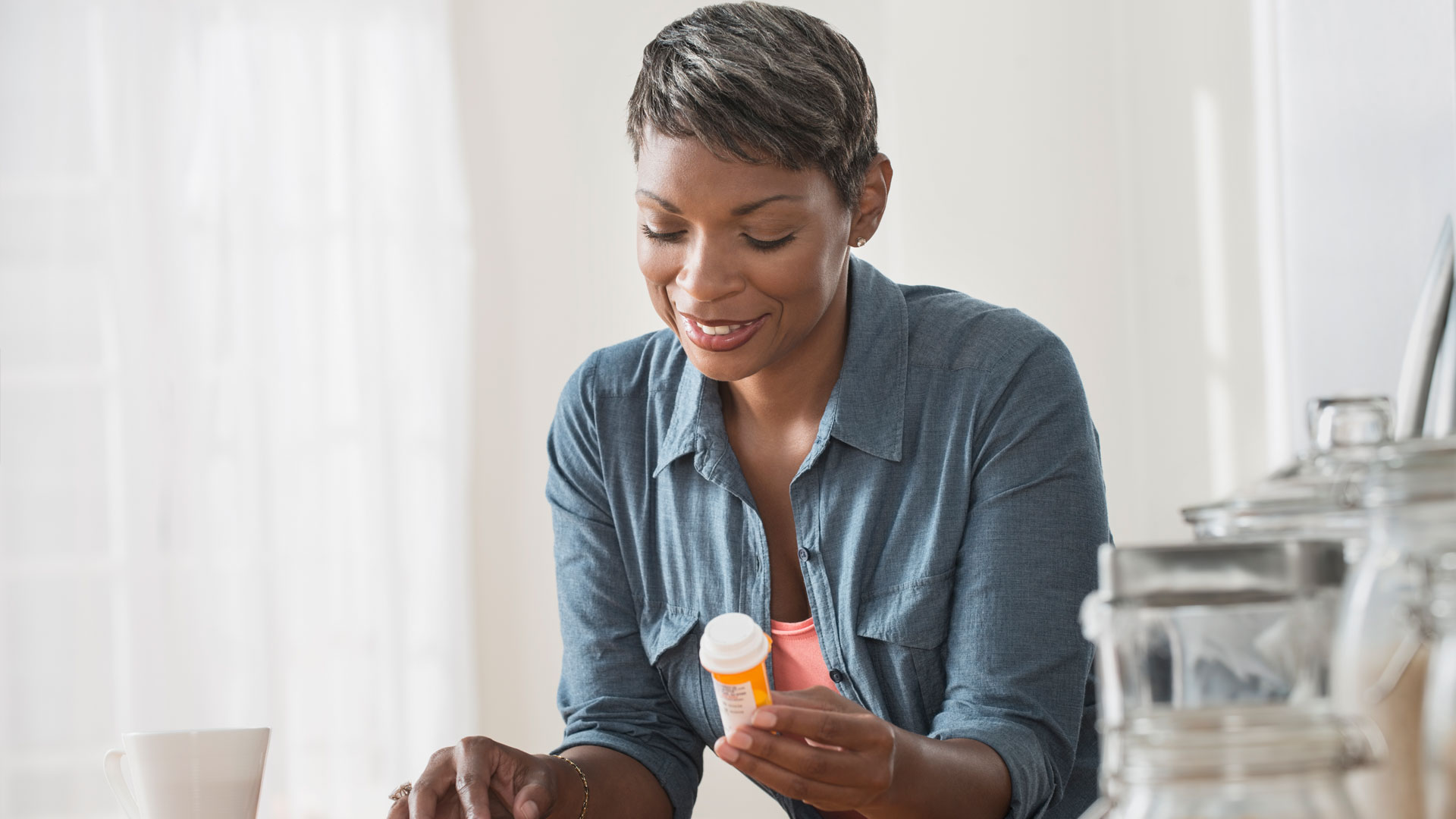Early menopause symptoms: what to look for and how to manage them
Find out the most common early menopause symptoms and how to treat them


Start your week with achievable workout ideas, health tips and wellbeing advice in your inbox.
You are now subscribed
Your newsletter sign-up was successful
Early menopause symptoms aren’t always easy to spot. Each experience of menopause is individual and no two women will follow exactly the same journey. What we do know though, is that the earlier we can identify symptoms, the easier they tend to be to manage.
There is much we can do to help lessen the impact of early menopause symptoms. With that in mind, we spoke to menopause experts about hormone replacement therapy (HRT) and some of the best diet, exercise, and lifestyle approaches, including supplements. You may also want to take a look at our guide covering the very best menopause supplements.
When does menopause begin?
Menopause is when a woman stops having periods. For most, this is classed as the time that follows 12 months without a menstrual period. “The ovaries have stopped functioning and the reproductive hormones progesterone and oestrogen are very low but stable,” explains gynecologist and health care advisor Dr Michelle Griffin. “The age women reach menopause varies but the average is 51.”
The phase leading up to menopause is called perimenopause. “During perimenopause, the ovaries are functioning erratically and reproductive hormones are fluctuating,” says Dr Griffin. “It is this fluctuation of hormones which can cause symptoms such as hot flushes and irregular periods. This phase lasts, on average, around five to eight years and typically begins in the early 40s.”
However, women experience menopause and perimenopause differently. Some may start to notice symptoms as early as their mid to late 30s, while for others it will be much later. “A well-regarded SWAN study showed that black, Latina, and Asian women tend to enter perimenopause earlier and have a longer phase of perimenopause with more intense symptoms,” says Dr Griffin.

What are the most common early menopause symptoms?
Early menopause symptoms can be vague, varied, and easily attributed to other things, such as stress or aging. “It makes it hard for doctors to diagnose,” says Dr Griffin, who recommends completing a symptom checklist such as the one from Dr Louise Newson’s website Balance. “You could also track your symptoms for a month or two. The more preparation you do the better. If you are 40+ and experience any of the relevant symptoms it's always worth asking the question, ‘Could it be the perimenopause?’.”
What else can you look out for?
Start your week with achievable workout ideas, health tips and wellbeing advice in your inbox.
Irregular periods
Fluctuating hormones can lead to irregular, heavy periods but this might not be your first symptom. “You can have regular periods and still be perimenopausal,” says Dr Annice Mukherjee, an endocrinologist and author of The Complete Guide to the Menopause. “Heavy, unpredictable periods can be exhausting. The Mirena coil can not only stop the bleeding but can often lessen the severity of some of the other menopause symptoms too.”
Sleep
“Some women may have trouble getting to sleep while others may fall asleep easily but wake in the night,” explains Dr Griffin. “Supplements such as magnesium may help especially if you find it difficult to get to sleep. Cognitive Behavioral Therapy (CBT) is also great for improving sleep.”
Mood
Fluctuating hormones can also cause anxiety, low mood, irritability, and mood swings. “Some women describe it as a bit like elongated PMT throughout their cycle - it is more intense and frequent and lasts longer,” explains Dr Griffin.
Dr Mukherjee recommends incorporating everyday mindfulness into your daily life. “Even something as simple as walking outside for 10 minutes and noticing the cold on your cheeks or the sound of the birds,” she says. “CBT and exercise can also be helpful.”
Aching joints

“Estrogen plays an anti-inflammatory role,” explains Dr Griffin. “Aching joints are common. You might also notice that you are more susceptible to injury or find it harder to recover from a workout.”
“Regular physical activity and movement are almost always helpful for aching joints,” says Dr Mukherjee. “Physiotherapy and anti-inflammatory medication may also help and can be accessed through your doctor.”
Digestion
Some women suffer from digestive issues such as bloating and IBS during menopause and perimenopause. “With less calming, anti-inflammatory estrogen, and consequent effects on your gut bacteria (or gut microbiome), you might find your gut plays up more,” says Dr Griffin. “Taking regular exercise and eating more foods rich in prebiotics and probiotics can be helpful.”
Memory loss and brain fog
You may find you go upstairs and forget why, find it harder to reach decisions, or just feel a bit spaced out. It’s possible you are experiencing cognitive symptoms of perimenopause.
A 2021 study found physical changes to the female brain during perimenopause. “The brain is affected by the fluctuations in oestrogen,” explains Dr Griffin. “Thankfully those dips in brain activity do come back up post-menopause. The brain adapts to the loss of oestrogen but it takes time.”
A focus on diet may help. “Blood sugar dips can lead to a loss of focus so manage them by including slow-release carbohydrates in meals and reducing sugary foods,” says Dr Mukherjee. “Ensuring your diet contains optimal amounts of B vitamins and zinc can also help.”
Hot flushes
The most notorious of early menopause symptoms, hot flushes can occur at night or during the day without warning. Caused by fluctuations in hormone levels they can be difficult to manage.
“Caffeine may worsen hot flushes and night sweats,” says Dr Griffin. “While Cognitive Behavioral Therapy can sometimes help improve them.”
Breast tenderness
“Perimenopausal estrogen surges can lead to sore, tender breasts,” explains Dr Mukherjee. “Evening Primrose Oil or Starflower Oil supplements may help but it’s always worth getting breast soreness checked by your doctor.”
How to cope with early menopause symptoms

“It’s common for women to try to manage early symptoms,” explains Dr Griffin. “They hold out until it gets really bad but symptoms are easier to treat the earlier you catch them. The desire to cover up symptoms can mean you have a horrendous time in your 40s. In extreme cases it can lead to the breakdown of relationships, losing work, and strained relationships with children.”
So, what things can help?
HRT and medication
“Hormone Replacement Therapy (HRT) is clinically proven to improve perimenopausal and menopausal symptoms and have preventative benefits on bone, heart, and brain health,” says Dr Griffin. “Research suggests that HRT has the most benefit and least risk when taken before the age of 60 or within 10 years of menopause. Although many women are nervous about the safety of HRT, the benefits outweigh the risks for many women.”
Not all women can (or want to) take HRT, however, and there are plenty of other options, including medication. “HRT isn’t a magic fix and a healthy lifestyle will significantly improve symptoms and long-term health either alongside HRT/medication or as a standalone treatment,” says Dr Griffin.
Diet and exercise
“A healthy, balanced diet, increased physical activity and strength training will all help improve physique, prevent osteoporosis, improve mood regulation and sleep,” says Dr Griffin. “These three measures work together to better manage blood sugar which is critical for short and long term health.”
Supplements

“Menopause supplements are generally not supported by strong research evidence. However, some women do find different supplements helpful,” explains Dr Mukherjee. “It’s important to first check with your GP that there are no contraindications with any other medications you are taking. I would then suggest trying it for a few weeks to see if it helps. If it hasn’t helped after six to eight weeks then it probably won't. Also, if you feel great at first and then symptoms return, it may just have been a placebo effect.” For more on this, head to the best menopause supplements.
For more on menopause, take a look at our feature on menopause itchy skin: tips for relief. Plus, we answer; does menopause make you tired?
Claire is a freelance health, fitness and food journalist who has written for titles including Women’s Health, Top Santé, Woman & Home, Feel Good You, the Telegraph and Independent. She has a passion for being outside in nature and you’re more likely to find her walking in the woods or joining an exercise class in the park than pounding a treadmill in the gym. She also has a special interest in nutrition and healthy eating, having previously been Food Editor at Top Santé magazine. Her top fitness tip? Take your exercise outdoors wherever possible. It has been shown to boost the physical as well as mental health benefits of a workout and also to make you more likely to want to do it again!
